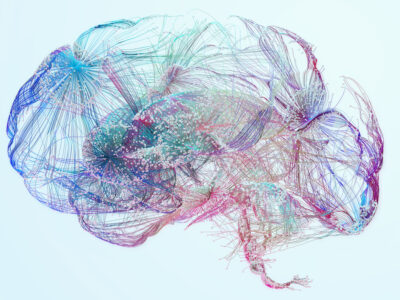Table of Contents[Hide][Show]
What Is the Hypothalamus?
The hypothalamus is a region of the brain that is important for a balanced state in the body. Its major role is to ensure regulation of the body’s internal balance (homeostasis).
An unbalanced hypothalamus throws most other hormones out of balance. It affects the pituitary gland and adrenal gland, which then affects the endocrine and the nervous system.
The endocrine system is a network of glands that secrete hormones to ensure the body functions properly. The hypothalamus is one of these glands, and it essentially links the endocrine and the nervous system.
The Activation of the Hypothalamus
The hypothalamus produces hormones that “stop and start the production of other hormones throughout the body.” It is constantly receiving and sending signals throughout the body and the brain.
The hypothalamus receives input from all parts of the nervous system such as stress, microbes, light, odors, impulses from the reproductive tract, and other hormonal signals that regulate hunger and satiation.
Secretion of hormones to the bloodstream depends on these signals the brain receives on a daily basis.

The Role of the Hypothalamus in Balancing the Body
1. Fight or Flight
The hypothalamus sends signals from the brain to the body during emergency situations. It triggers the body’s fight or flight response to these events.
It rapidly jumps into action when you are presented with a life-threatening situation or any other threat and is responsible for redirecting bodily energy resources during these fight or flight situations.
When you are in danger, the hypothalamus suppresses your immunity by vasoconstriction, suppression of reproductive function, and inhibiting of bone and muscle growth.
It stimulates energy mobilization in the liver, helping you fend off that lion, boss, or present danger. It also inhibits other hormonal systems to reduce energy expenditure on processes unrelated to the immediate challenge.
When the threat is gone, the hypothalamus then acts to restore homeostasis. It replenishes lost energy stores by increasing glucose in the system. These restorative actions bring the body back to a normal or resting state.
Related
Homeostasis: Why It’s Important
Homeostasis is vital to our everyday stable functioning. Learn how it works and how you can encourage it through a healthy lifestyle.
2. Hormones in Regulating the Body’s Homeostasis
The hypothalamus plays a vital role in many body functions and your overall well-being.
For example, it helps regulate the body’s temperature by causing shivering to produce heat and blocks sweat production to retain heat. It also helps the body during childbirth and regulates blood pressure and heart rate, thirst, sleep cycles, sex drive, and digestion.
Each process needs certain hormones to work properly. Too little or too much of these hormones will cause an imbalance in the body’s internal functions. This may result in hypothalamus disorders that will require your doctor’s attention.
The following primary hormones are produced by the hypothalamus with its important functions:
- Corticotropin-releasing hormone (CRH) responds to physical and emotional stress.
- Anti-diuretic hormone (ACTH) is an important stress hormone. It triggers cortisol production, regulates water levels, and affects blood pressure and volume.
- Thyrotropin-releasing hormone (TRH) plays a role in brain development, muscle control, digestion, metabolism, and heart function.
- Growth Hormone-releasing hormone (GHRH) is involved in reproductive hormones; is responsible for physical development in children and metabolism in adults.
- Oxytocin controls important behaviors and emotions such as anxiety, sexual arousal, trust, recognition, and maternal behavior.
- Somatostatin inhibits the release of certain hormones, including glucagon and insulin.
- Gonadotropin-releasing hormone (GnRH) maintains reproductive function.
- Prolactin-releasing hormone (PRH), also known as dopamine, stimulates breast milk production.
These hypothalamus hormones work together so your organs work properly, which helps your body function the way it should.
Maintaining a Healthy Hypothalamus
We have seen the impact hormones have on our bodily functions. It is also worth noting that they must be in careful balance.
Research shows that not enough or too much of any of these hormones “will affect the body’s health and well-being.”
For example, too much of the hormone TRH can cause weight loss or muscle weakness, while very low levels can cause weight gain, depression, and fatigue. Eating healthy foods, exercising, and meditating help the hypothalamus produce a balanced, healthy body.
Most people don’t know how important the hypothalamus is. The function of the hypothalamus holds an important part in your body’s daily processes. Knowing its importance will help you figure out how to keep it healthy and functioning properly.
Stress can also affect the secretion of hormones within the body. Make sure you take steps to de-stress and rid your body and mind of toxicity.
You May Also Like…
Editor’s Note: This post was originally published on May 4, 2018, and has been updated for quality and relevancy.






